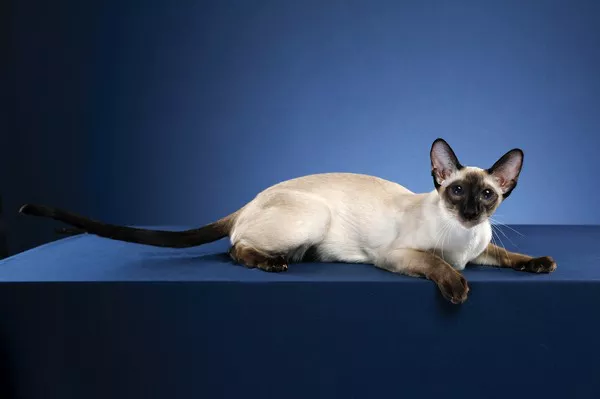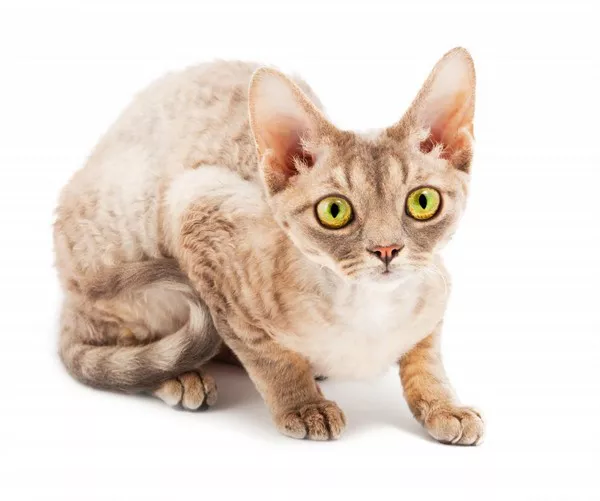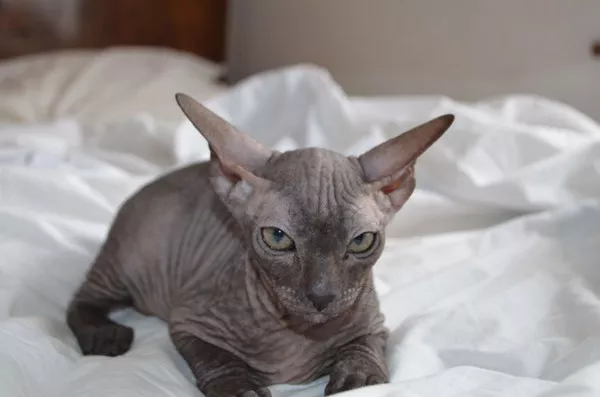Siamese cats are known for their sleek and slender appearance, often characterized by their lithe bodies and striking blue almond-shaped eyes. Their slim physique is a distinguishing feature of the breed, but why are Siamese cats so skinny? In this comprehensive article, we delve into the genetics, metabolism, and unique characteristics of Siamese cats that contribute to their slim build, dispelling common misconceptions and offering insights into their health and care.
The Genetics of Siamese Cats
The Siamese cat‘s slender body is primarily a result of genetics. These felines have a unique genetic makeup that influences their coat color, body structure, and metabolism. The slender appearance of Siamese cats can be attributed to several genetic factors:
Color Point Mutation: Siamese cats have a color-point mutation, which means their body temperature affects their coat color. The cooler areas of their bodies, such as the extremities (ears, face, paws, and tail), develop darker pigmentation, while the warmer body core remains lighter. This variation in coloration enhances the perception of their lean bodies.
Albinism Gene: Siamese cats possess a partial form of albinism that results in the absence of pigment-producing cells in their fur. Their pale coats make them appear slimmer and emphasize their angular features.
Body Type: Siamese cats have a distinct body type characterized by a long, slender build, fine-boned structure, and elongated legs. These physical attributes contribute to their lean appearance.
Metabolism: Siamese cats tend to have a higher metabolic rate than some other breeds. Their metabolism is efficient at burning calories, which can make it challenging for them to maintain or gain weight.
Siamese Cats’ Energetic Nature
Beyond genetics, Siamese cats are known for their active and playful personalities. Their boundless energy and curiosity lead them to engage in frequent physical activity, which can contribute to their slim physique. Here are some factors that make Siamese cats particularly active:
Playfulness: Siamese cats are highly playful and enjoy interactive games, toys, and activities that keep them physically engaged.
Curiosity: Their inquisitive nature prompts them to explore their surroundings, investigate new objects, and engage in exploration, which burns calories.
Social Interaction: Siamese cats thrive on social interaction and may play with their owners or other pets, further increasing their physical activity.
The Myth of Siamese Cats’ Weight Problems
Despite their naturally slender build, Siamese cats are sometimes mistakenly perceived as being underweight or having weight problems. This misconception can lead to concerns about their health and well-being. However, it’s essential to understand that a healthy Siamese cat will have a lean appearance due to their genetics and active lifestyle.
Maintaining a Siamese cat’s health involves monitoring their body condition rather than focusing solely on their weight. A healthy Siamese cat should exhibit the following characteristics:
Visible Musculature: A Siamese cat’s lean appearance should be accompanied by visible musculature, especially in their legs and shoulders.
Proper Nutrition: Ensure your Siamese cat receives a balanced diet appropriate for their age, size, and activity level. Consult your veterinarian for dietary recommendations.
Regular Veterinary Check-Ups: Routine veterinary check-ups are essential to monitor your Siamese cat’s overall health, including body condition, dental health, and vaccinations.
Adequate Hydration: Make sure your cat has access to clean, fresh water at all times to maintain proper hydration.
Regular Exercise: Encourage play and physical activity to keep your Siamese cat mentally and physically stimulated.
Body Condition Scoring: Your veterinarian can assess your cat’s body condition using a scoring system to ensure they are within a healthy weight range.
Potential Health Concerns
While a lean physique is typical for Siamese cats, it’s essential to be vigilant about their overall health. Some health concerns that can affect Siamese cats, as well as other breeds, include:
Hyperthyroidism: Hyperthyroidism is an overactive thyroid gland, which can lead to weight loss despite an increased appetite. Regular thyroid checks are crucial for older cats.
Gastrointestinal Disorders: Cats with digestive issues may have difficulty maintaining a healthy weight. These issues can include inflammatory bowel disease (IBD) or food allergies.
Dental Problems: Dental pain or dental disease can lead to reluctance to eat, resulting in weight loss. Regular dental care is essential for all cats.
Parasites: Internal parasites, such as worms, can affect a cat’s ability to absorb nutrients from their food, leading to weight loss.
If you notice significant changes in your Siamese cat’s weight, eating habits, or behavior, consult your veterinarian promptly. Early detection and treatment are essential in addressing potential health issues.
Conclusion
Siamese cats are naturally slender due to their unique genetics and active personalities. While their slim build is a defining characteristic of the breed, it is not indicative of health problems in most cases. Monitoring your Siamese cat’s overall health, providing proper nutrition, regular exercise, and routine veterinary care are essential in ensuring their well-being. By understanding and embracing their natural physique, you can provide the best care and companionship for your beloved Siamese feline friend.



























